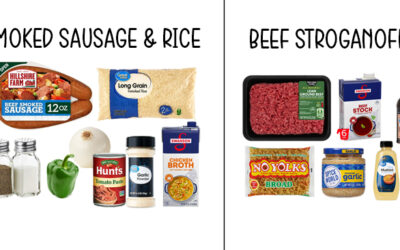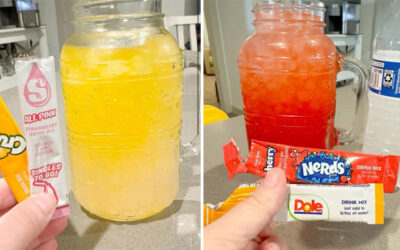Are you a Zantac user? Does someone you love use it? If so, you may have heard about the Zantac recall. If not, or to learn more, keep reading.
Everything You Need to Know About the Zantac Recall
Ranitidine, found in Zantac and some other acid reflux meds, has been recalled due to confirmed unacceptable levels of NDMA.
The following information is from the FDA.
- Not all ranitidine medicines marketed in the U.S. are being recalled.
- FDA does not have scientific evidence to recommend whether individuals should continue or stop taking ranitidine medicines at this time. The agency is conducting further tests to determine the risk to consumers.
- Consumers taking OTC ranitidine may consider using other OTC products approved for their condition.
- Our preliminary tests of alternatives such as Pepcid (famotidine), Tagamet (cimetidine), Nexium (esomeprazole), Prevacid (lansoprazole) and Prilosec (omeprazole) show no NDMA in the medicines.
- Patients taking prescription ranitidine who wish to stop should talk to their health care professional about other treatment options. Multiple drugs are approved for the same or similar uses as ranitidine.
What is NDMA and why it matters in the Zantac recall?
It’s N-Nitrosodimethylamine, an environmental contaminant.
The primary sources of human exposure to NDMA are tobacco smoke, chewing tobacco, diet [cured meats (particularly bacon), beer, fish, cheese, and other food items], toiletry and cosmetic products (for example, shampoos and cleansers), interior air of cars, and various other household goods, such as detergents and pesticides. In addition, NDMA can form in the stomach during digestion of alkylamine-containing foods. Alkylamines are naturally occurring compounds that are found in some drugs and in a variety of foods. (CDC)
NDMA is classified as a “probable human carcinogen” because it has been found to cause cancer in animal studies. The chemical forms as a byproduct of certain industrial processes, and it was formerly used in the production of rocket fuel, according to the U.S. Environmental Protection Agency.
The CDC says although there are no reports of NDMA causing cancer in humans, it is reasonable to expect that exposure to NDMA by eating, drinking, or breathing could cause cancer in humans. Mice that were fed NDMA during pregnancy had offspring that were born dead or died shortly after birth. However, it is not known whether NDMA could cause the death of human babies whose mothers are exposed during pregnancy. It should be realized that exposure to NDMA does not mean that any effect on health will definitely occur.
Talk to your doctor about the Zantac recall.
The FDA suggests you do the following. “Patients taking prescription ranitidine who wish to stop should talk to their health care professional about other treatment options. Consumers taking OTC ranitidine, which is used to prevent and relieve heartburn associated with acid indigestion and sour stomach, may consider using other OTC products approved for their condition. FDA’s testing of samples of alternatives such as Pepcid (famotidine), Tagamet (cimetidine), Nexium (esomeprazole), Prevacid (lansoprazole), and Prilosec (omeprazole) show no NDMA in these medicines.”
Keep your eye on the FDA to learn more.
I’m certain they will keep the public up to date as this is a potentially very big deal. In the meantime, throw away what you have or call the number on the bottle and return it for a refund.
There will be ranitidine and Zantac lawsuits.
I can almost guarantee there are already lawsuits gearing up. All you have to do is check Google and/or TopClassActions.com.
Sher Bailey is a writer in the Midwest who believes the power of humor, Mod Podge, and grandkids can fix most problems in life. You can find her at SherBailey.com.







Leave a Reply